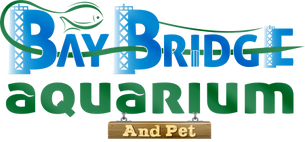
Albino Senegal Bichir
Please contact us at info@baybridgeaquarium.com to confirm immediately availability. Livestock inventory is subject to change and prior sale. Fish shipments may take several days to fulfill.
Click Here to See Images
Basics
Scientific Name: Polypterus senegalus
Family: Polypteridae
Origin: Captive bred, species originally from Africa
Quick Facts
- Care Level: Easy
- Temperament: Semi-aggressive
- Lifespan: 15-20 years average, 30+ years possible
- Water Conditions: 77-80° F, KH 8-12, pH 6.5-7.5
- Maximum Size: 18"- 20" (1'6"- 1'8")
- Diet: Carnivore
- Minimum Tank Size: 100 gallons
Overview
The Senegal Bichir is also commonly called the Cuvier Bichir, and the albino variant is also simply referred to as an Albino Bichir. It has a long, snake-like body and head that is pinkish in color and large red eyes, though since they are a nocturnal species their vision is not very keen. It has many small dorsal fins down the lower half of its back, two pectoral fins that it seems to balance on when resting on the bottom of the tank, two small anal fins and one spade shaped tail fin. The fins are yellowish in color. Two whisker like appendages sprout from the nose.
They are considered an excellent beginner "odd-ball" fish, being hardy and having easy care. They will be best kept in a large aquarium with plenty of swimming space that is short and long rather than high, as they are bottom dwellers. They will appreciate hiding caves and driftwood, and being provided with a fine, sandy substrate. The tank must have a tight fitting lid, as they may jump out. Having a divided, double chamber swim bladder and primitive lung, they can survive outside of water for a while if they are kept moist. If their needs are met they will not be aggressive towards other similar sized or large fish; they are considered semi-aggressive solely based on the fact that they will eat any fish or invertebrate that can fit in their mouth and are actually quite passive otherwise.
Bichirs should be fed a variety of meaty foods including: different types of worms, shrimp, krill, and most will also readily accept frozen preparations, pellets and wafers. They can be fed feeder fish but there is a risk of parasites or disease being introduced to your tank so it is not usually recommended.
Images used on this site are for informational purposes only, for actual photos of livestock please contact us (877) 809-4067.
